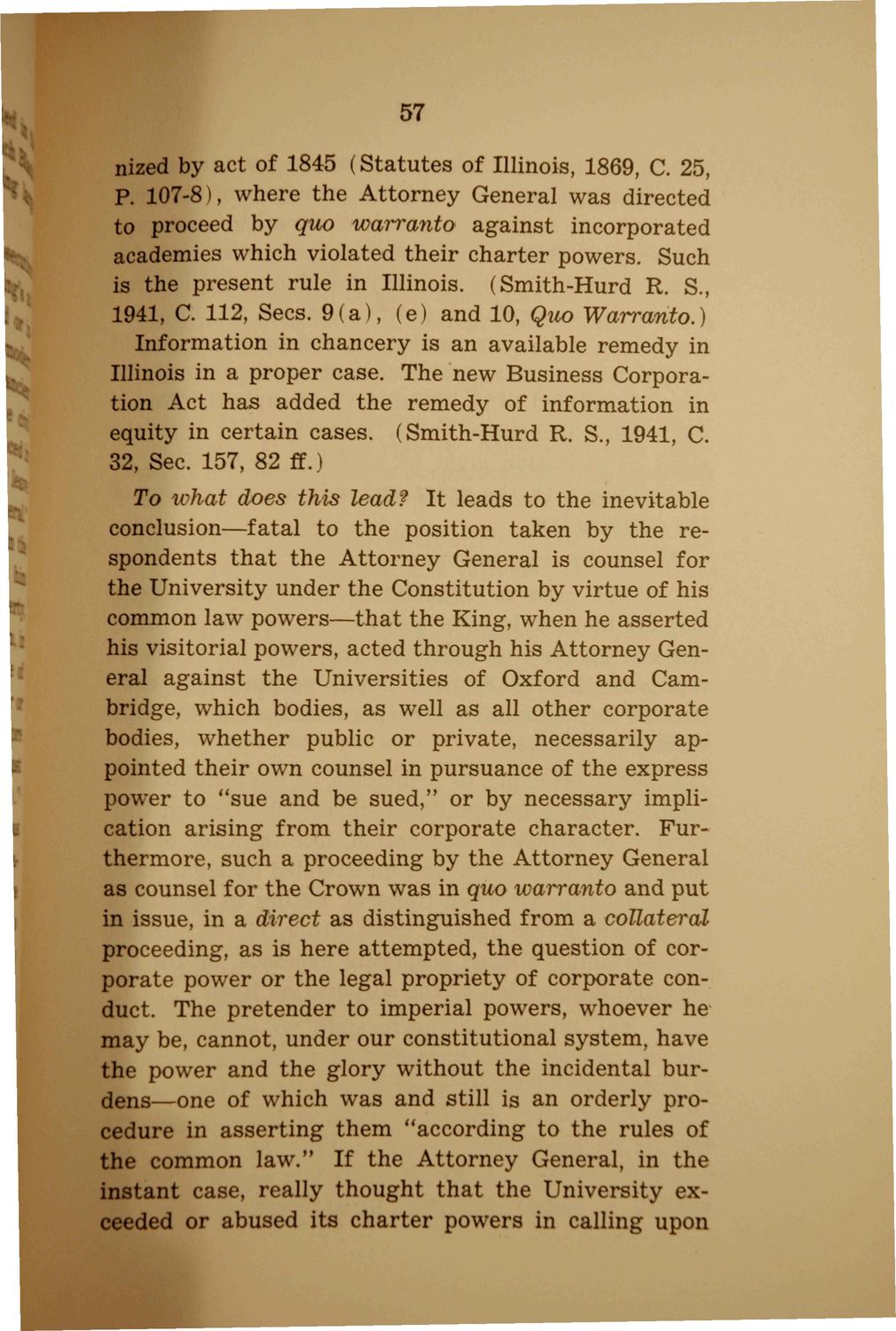| |
| |
Caption: Booklet - UI Charter of Freedom (1942)
This is a reduced-resolution page image for fast online browsing.

EXTRACTED TEXT FROM PAGE:
57 nized by act of 1845 (Statutes of Illinois, 1869, C. 25, P. 107-8), where the Attorney General was directed to proceed by quo warranto against incorporated academies which violated their charter powers. Such is the present rule in Illinois. (Smith-Hurd R. S., 1941, C. 112, Sees. 9 ( a ) , (e) and 10, Quo Warranto.) Information in chancery is an available remedy in Illinois in a proper case. The new Business Corporation Act has added the remedy of information in equity in certain cases. (Smith-Hurd R. S., 1941, C. 32, Sec. 157, 82 ff.) To what does this lead? It leads to the inevitable conclusion—fatal to the position taken by the respondents that the Attorney General is counsel for the University under the Constitution by virtue of his common law powers—that the King, when he asserted his visitorial powers, acted through his Attorney General against the Universities of Oxford and Cambridge, which bodies, as well as all other corporate bodies, whether public or private, necessarily appointed their own counsel in pursuance of the express power to "sue and be sued," or by necessary implication arising from their corporate character. Furthermore, such a proceeding by the Attorney General as counsel for the Crown was in quo warranto and put in issue, in a direct as distinguished from a collateral proceeding, as is here attempted, the question of corporate power or the legal propriety of corporate conduct. The pretender to imperial powers, whoever he may be, cannot, under our constitutional system, have the power and the glory without the incidental burdens—one of which was and still is an orderly procedure in asserting them "according to the rules of the common law." If the Attorney General, in the instant case, really thought that the University exceeded or abused its charter powers in calling upon
| |